Recent Blog Posts
Will I Still Be Able to Drive After My Wisconsin OWI Charge?

Nobody ever plans to get pulled over and arrested for drinking and driving, but it happens more often than you may think. There were nearly 29,000 people arrested for operating a vehicle while under the influence of alcohol in Wisconsin in 2015, according to the Department of Transportation (DoT). If you are arrested for OWI, chances are you will also be convicted as the DoT also stated that the drivers in 93 percent of the OWI cases that were charged were found guilty. If you are convicted of even a first-time OWI offense in Wisconsin, you could have your driver’s license suspended or revoked for six to nine months, making your life more difficult. Fortunately, you may be able to apply for an occupational license, which would alleviate some of the hardship.
Obtaining an Occupational License
The first question that is often on a person’s mind after being charged with OWI is, “Am I still able to drive?” The answer to that question usually depends on the circumstances surrounding the case. In Wisconsin, an occupational license can be requested to allow you to drive to and from work or school. To be eligible for an occupational license, you must have had a valid license prior to its suspension or revocation. You will not be eligible for an occupational license if you have two or more revocation or suspension cases from separate incidents in a one-year period or if you have not served all mandatory waiting periods before applying for the occupational license.
What Does a Parenting Plan Address in a Wisconsin Divorce?

One of the biggest fears that parents have when ending their marriage is how divorce will affect their children. Fortunately, most children whose parents get divorced grow up to be happy, successful, and well-adjusted adults. Studies have shown that children of divorce are relatively unaffected by the event as long as they are exposed to marital conflict as little as possible. In order to promote cooperation, Wisconsin courts require parents to attend mediation to try to create a parenting plan before appearing before a judge. If mediation fails or would be inappropriate, then you will need to go to court, where a judge will determine a parenting plan for you. However, if you and your co-parent are able to negotiate a plan among yourselves, this is even more beneficial.
Elements of a Parenting Plan
What Are the Penalties for an OWI That Results in Injury or Death?
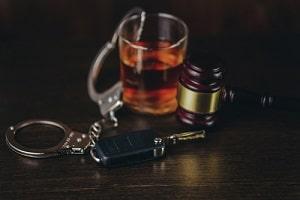
One of the leading causes of death in the nation continues to be motor vehicle accidents. According to the latest data available from the National Highway Traffic Safety Administration (NHTSA), there were more than 36,500 people who died in traffic accidents in the United States in 2018. Of those individuals, more than 10,500, or 29 percent, were killed because of an alcohol-related traffic accident. In Wisconsin, operating a vehicle while under the influence of alcohol or any other intoxicating substance is illegal and can lead to serious consequences. However, if the injury or death of another person were to result from an OWI charge, you could face even more serious penalties.
Punishments for Injury or Death With OWI
Wisconsin is the last state to punish first-time OWI offenders with a criminal charge, rather than simply a moving violation. Currently, a first-time OWI in Wisconsin can land you a fine of $150 to $300 and a six- to nine-month driver’s license revocation. However, if you cause bodily harm or injury to another person while you were operating a vehicle while intoxicated, even during a first-time offense, you could face $300 to $2,000 in fines, up to one year in prison, and up to a two-year driver’s license revocation. If you have had prior OWI convictions and/or chemical test refusals, you will face stricter penalties. This can be charged as a Class H felony, which carries a possible six-year prison sentence and up to $10,000 in fines.
Recognizing Signs of Parental Alienation During a Wisconsin Divorce
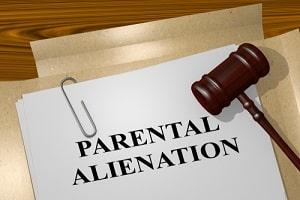
Divorce is never easy for anyone, but for a child, coping with a divorce can be more difficult than it is for other members of the family. This is especially true for divorces that involve a lot of conflict or disagreements between the spouses. In high-conflict divorces, everyone feels the effects of the split, especially a child. In some cases, a parent may even use a son or daughter to his or her advantage during the divorce by pitting the child against their soon-to-be-ex spouse. Parental alienation is a serious issue present in some contentious divorces that can not only cause issues during the divorce process but can have lasting effects on the relationship between the child and his or her parents.
What Is Parental Alienation?
Parental alienation occurs when one parent uses various strategies and methods to isolate his or her child from the other parent and attempts to sabotage or harm the relationship between them. Most of the time, this type of behavior is intentional by the acting parent and is intended to "get back at" or hurt the other parent. While parental alienation is aimed at harming the other parent, the child becomes collateral damage and can suffer emotional and mental distress and other long-term effects.
What Are Wisconsin’s Firearm Possession and Carry Laws?
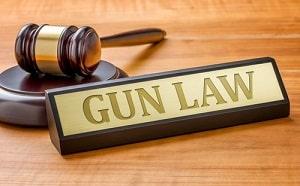
When our government was created, the Founding Fathers’ intention was to limit the amount of power that any one person or group of people could have, which is why there are certain things that the federal government does not regulate, such as licensing drivers or certain aspects of gun ownership. While there are federal gun laws that citizens of all states must abide by, each state is also responsible for creating and enforcing its own firearm regulations. The state of Wisconsin tends to be more of a firearm-friendly state and has somewhat less strict laws than other states. However, violating firearm possession laws can lead to serious consequences if you find yourself facing criminal charges.
Open Carry Laws and Limitations
All states are different when it comes to carrying firearms in public. Some states may require you to obtain a permit simply just to purchase and/or carry your firearm. Like other states, Wisconsin is an open carry state, meaning anyone who is over the age of 18 and is legally permitted to possess a firearm can carry one in public as long as it is not concealed. There are limitations to that rule, however. You are prohibited from openly carrying a firearm in the following places in Wisconsin:
Is It Possible to Modify My Existing Wisconsin Child Support Order?
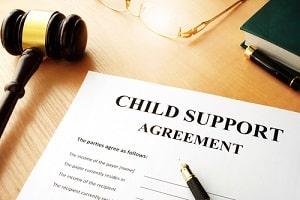
When you get divorced as a parent, there are many extra things that you have to deal with that a childless person getting a divorce does not. In addition to deciding what you are going to do with the marital home, how you will split up your retirement funds, and who gets to keep the family pet, you will also have to determine how parenting time will be split up, where the children will live, and who will pay child support. Typically, the noncustodial parent, or the parent with the least amount of parenting time, is the one who pays child support to the other parent. Child support exists until the child turns 18 or finishes high school, but the terms of the support are not technically set in stone. Depending on your circumstances, you may be able to have your child support order modified in Wisconsin.
How Are Wisconsin OWI Charges Affected When a Minor is in the Vehicle?

The state of Wisconsin is one of the few states that still treat the first-time charge for operating a vehicle while intoxicated (OWI) as a moving violation rather than a crime. However, circumstances significantly change if a person has a minor who is under the age of 16 in the vehicle at the time the OWI is committed. In the past couple of years, Wisconsin lawmakers have made changes to some of the state’s drunk driving laws, with updated penalties for minor passengers being one of them. In many cases, offenders could see their criminal penalties as much as double if they were driving under the influence with a minor in the vehicle.
First and Second OWI With No Prior Offense
For a typical first or second OWI charge with no prior OWI charges in the preceding 10 years, an offender typically would face up to a $300 fine, up to a nine-month license suspension, and no jail time. However, if a minor was in the vehicle when the offense was committed, he or she could face between $350 and $1,100 in fines, a 12-18-month license suspension, and up to six months in jail.
What to Do if You Suspect Your Spouse Is Hiding Assets From You
 How do you know when it is time to end a marriage? There is no correct answer to that question because there is a different “right” answer for everyone. Many people report feeling distant or emotionally separated from their partners well before they divorced, but many also report that they knew it was time for a divorce when they could no longer trust their spouse. When you cannot trust your spouse during your marriage, you probably cannot trust him or her during your divorce either. How do you know if your spouse is being truthful about everything he or she owns or how much money you both have? If you think that your spouse might be hiding assets from you, taking action is essential. Here are a few things you can do to begin your hunt for hidden assets:
How do you know when it is time to end a marriage? There is no correct answer to that question because there is a different “right” answer for everyone. Many people report feeling distant or emotionally separated from their partners well before they divorced, but many also report that they knew it was time for a divorce when they could no longer trust their spouse. When you cannot trust your spouse during your marriage, you probably cannot trust him or her during your divorce either. How do you know if your spouse is being truthful about everything he or she owns or how much money you both have? If you think that your spouse might be hiding assets from you, taking action is essential. Here are a few things you can do to begin your hunt for hidden assets:
Can My Child Be Tried As an Adult for Criminal Charges in Wisconsin?
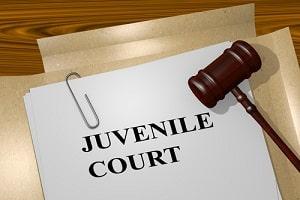
As a parent, one of the worst phone calls you could receive is one from your child stating that he or she has gotten into trouble with the law. Being arrested and charged with a criminal offense is a serious situation, regardless of whether or not you are an adult or a child. If your minor has been arrested or has had a run-in with the law, you may be wondering if he or she will be tried as an adult or as a child. In many cases, a juvenile will be tried and sentenced through the juvenile justice system, which functions slightly differently than the adult criminal justice system. In some cases, however, a juvenile may be tried in adult court for certain crimes in Wisconsin.
17-Year-Olds Are Considered Adults
Wisconsin is still among the few states that always consider juveniles who are at least 17 years old to be “adults.” This means that if a 17-year-old is arrested and charged with a crime, his or her case automatically is sent to adult court, not juvenile court. However, those who were 15 or 16 at the time of the offense may be tried either as a juvenile or an adult. This decision is up to the court’s discretion and mainly depends on the nature of the offense and the possibility for rehabilitation.
How Is Child Custody Determined in Wisconsin Divorce Cases?

When you and your spouse decide to go your separate ways, there are many serious decisions that must be made about your child and your child’s future. You do not get to just simply walk away from your spouse after your divorce when you are a parent -- you must figure out a way to cooperate with one another for the sake of your child. One of the first things you and your spouse will have to agree on is who will have custody of your child and where your child will live. A Wisconsin child custody attorney can help guide you through the process.
Factors for Considering the Child’s Best Interest
Like most other states, Wisconsin courts presume that joint legal and physical custody is in the best interest of a child unless his or her mental, physical, or emotional health would be in danger if rights were awarded to both parents after the divorce. Legal custody and physical placement are decided on a separate basis, meaning it is possible for a parent to spend time with his or her child but have no decision-making capabilities.









 262-232-6699
262-232-6699





